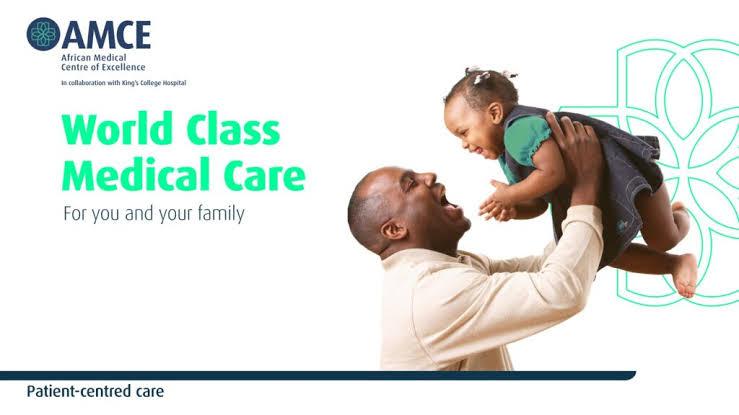AFC Commits up to $40m Investment to the African Medical Centre of Excellence, Abuja
Africa Finance Corporation (AFC), the leading provider of infrastructure solutions in Africa, has signed an equity investment term sheet today. This agreement commits up to US$40 million towards the construction of the African Medical Centre of Excellence (AMCE) Abuja hospital. The AMCE, a visionary 500-bed medical facility, is currently being developed by Africa Export-Import Bank (Afreximbank) in partnership with King’s College Hospital, London (KCH). The signing took place at the inaugural AMCE African Health Forum in Abuja.
This project will strategically leverage KCH’s unmatched expertise in diagnostics, clinical services, and capacity-building. It will specialize in three core non-communicable diseases – oncology, cardiology, and haematology – with a strong focus on world-class research, education, and development capabilities. The aim is for the AMCE to become a leader in clinical services.
The AMCE initiative marks a significant milestone in healthcare for West Africa. It seeks to redirect the trend of medical tourism away from the continent by establishing a series of world-class medical centers of excellence in Africa. This will ensure widespread access to critical healthcare services in the region.
AMCE Abuja, a groundbreaking medical treatment and research center, will be implemented in four stages spanning six years. AFC, as a new stakeholder, will play a crucial role in the initial phase, which entails constructing a specialized hospital with 170 beds that will eventually expand to 500 beds by the third phase. With construction progress surpassing the halfway mark, the facility remains on schedule to commence operations in the first quarter of 2025.
The healthcare sector in Africa grapples with a significant deficit in infrastructure and a chronic shortage of qualified medical professionals. Government-owned healthcare facilities are strained to their limits due to insufficient capacity, resulting in a reliance on medical tourism and its associated challenges. Hospitals throughout West Africa face funding difficulties, lack essential resources, and struggle to provide adequate healthcare access in rural areas.
The primary objective of AMCE is to bridge this gap by generating approximately 3,000 job opportunities during the construction and operational phases. It will employ over 200 individuals and offer training programs for doctors and nurses. Within its first five years of operation, the facility is projected to deliver state-of-the-art care to more than 350,000 patients in Nigeria and other African nations. Furthermore, it aims to attract skilled professionals back to the continent, thereby improving access to much-needed healthcare services.
AFC President & CEO, Samaila Zubairu, emphasized the pressing need to bridge the healthcare infrastructure gap and address the shortage of qualified medical practitioners in Africa. He expressed satisfaction in partnering with Afreximbank and King’s College Hospital, London, on a groundbreaking project that will revolutionize healthcare in Africa and reduce medical tourism. The objective is to construct a top-notch facility that not only captures medical expenditure within Africa but also promotes the development of specialized skills, retains local healthcare professionals, and attracts new talent. This aligns perfectly with AFC’s import substitution strategy, and they eagerly anticipate collaborating with all stakeholders to establish the AMCE as a symbol of medical excellence on the continent.
Benedict Oramah, President and Chairman of the Board of Directors of Afreximbank, expressed delight in AFC joining them as strategic partners in addressing Africa’s healthcare infrastructure challenges. This collaboration showcases the power of cooperation among African Development Finance Institutions in driving impactful projects that benefit communities and foster sustainable growth. By investing in AMCE Abuja, they not only support the establishment of world-class healthcare infrastructure but also create opportunities for job creation, skills development, and knowledge transfer. They invite more partners to join this crucial endeavor to revolutionize healthcare in Africa and make a lasting impact on community well-being.
This collaboration sets a significant precedent for African Development Finance Institutions (DFIs) to tackle infrastructure challenges across the continent. By establishing a world-class medical and health facility in West Africa, these institutions reaffirm their commitment to shaping a healthier and more sustainable future for Africa.




